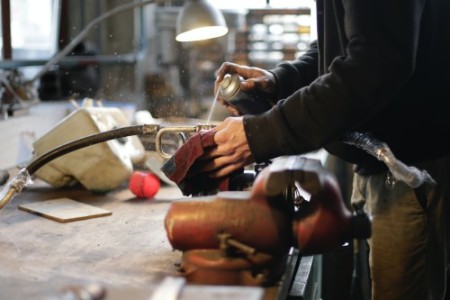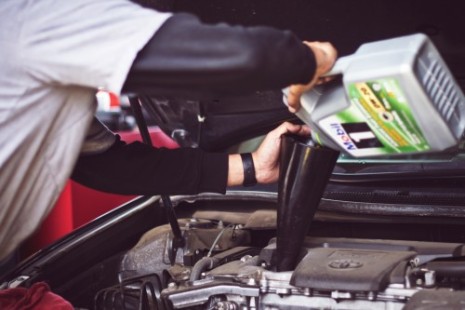Maintaining your automobile is essential to giving it a long and trouble-free life. While routine oil changes and Tyre rotations are common procedures, the differential fluid is one that is frequently disregarded. The performance and lifespan of your vehicle may suffer significantly if the differential fluid is not changed at the prescribed intervals. The reasons why you should never skip or put off replacing your car’s differential fluid are covered in this article.
Understanding Differential Fluid:
A specialized lubricant called differential fluid aids in lowering heat buildup and friction inside the differential housing. Additionally, it removes pollutants and debris that have accumulated over time. Due to heat, pressure, and mechanical stress, the fluid’s viscosity and additives deteriorate with time, necessitating routine replacement.

Uses of Differential Fluid
Lubrication and Heat Management:
Within the differential housing, differential fluid acts as a lubricant to lessen friction between moving elements. The lifespan of the differential components is increased because of this lubrication, which reduces excessive wear and strain. The fluid also aids in the dissipation of heat produced by friction, reducing overheating that may result in malfunction or even failure.
Contaminant Removal:
Differential fluid is susceptible to contamination over time by trash, metal shavings, and other particles that build up from everyday wear and tear. Failure to change the fluid can lead to a buildup of these pollutants, which can impair the fluid’s ability to lubricate and hasten the deterioration of the differential parts.
Maintaining Performance:
A properly maintained differential guarantees your car’s best performance and handling. By skipping fluid changes, the differential may experience more resistance and friction, which might cause the wheels to rotate unevenly and impact the stability of the entire vehicle. Reduced traction, poor handling, and poorer fuel efficiency may result from this.
Preventing Costly Repairs:
In comparison to the possible expenditures of repairing or replacing a broken differential, routine differential fluid replacements are a comparatively affordable preventive strategy. More serious problems, including gear tooth damage, bearing failure, and even total differential failure, might result from neglecting fluid changes. Such repairs could be expensive and time-consuming.
Manufacturer Recommendations:
Guidelines for routine maintenance, such as changing differential fluid, are provided by the vehicle manufacturers. Following these suggestions makes sure you are taking the finest care possible of your automobile while maintaining the warranty coverage.
The Role of Differential Fluid:
There might be an issue with your differential fluid if you hear strange noises, feel vibrations, or have trouble changing gears. It is preferable to follow the suggested change intervals because waiting for these symptoms to occur might result in more severe harm.
- Lubrication: The lubrication of the differential’s gears, bearings, and other moving elements is one of its main functions. By reducing friction and the heat produced by the spinning parts, this lubrication keeps the differential from wearing down too quickly.
- Heat Dissipation: The heat produced when the differential is operating is helped to disperse by the differential fluid. Heat is produced by mechanical forces and friction as the gears mesh and revolve. This heat is absorbed and removed by a properly working differential fluid, minimizing overheating that can cause component failure.
- Contaminant Removal: The debris, metal shavings, and impurities that gradually build up inside the differential housing are captured and removed by the differential fluid, which serves as a medium. This lessens the possibility that these particles will harm other parts, such as gears and bearings.
- Seal and O-Ring Preservation: The fluid also aids in protecting the differential system’s seals and O-Rings from damage. They are kept from breaking, drying out, or becoming brittle since doing so might cause fluid leaks and contamination.
- Smooth Power Distribution: The transfer of engine power to the wheels is facilitated by differential fluid, which enables the gears inside the differential to move smoothly and uniformly. The necessity for the outer wheels to rotate more quickly than the inner wheel during turns highlights the need for this even power distribution.
- Noise Reduction: Operating the differential more quietly is a result of properly greased gears and bearings. Components that are well-maintained and properly lubricated reduce friction-related noises like whining, grinding, or clunking sounds.
In conclusion, the differential fluid is essential for preserving the general well-being and efficiency of the differential system. The differential runs smoothly, effectively, and dependably when the fluid is changed routinely at the intervals advised by the manufacturer. It also protects the components from unnecessary wear and injury.

Importance of Regular Differential Fluid Changes:
- Heat Dissipation: The heat produced during operation is absorbed and dissipated by the differential fluid, minimizing overheating and component damage. The ability of aged and deteriorating fluid to withstand heat decreases over time, resulting in malfunctions.
- Friction Reduction: Proper lubrication minimizes wear and increases the differential’s lifespan by reducing friction between gears and bearings. Neglected fluid loses effectiveness, resulting in increased wear and damaged gear.
- Contaminant Removal: Debris, metal shavings, and pollutants that inevitably amass during operation are captured by differential fluid. If the fluid is not replaced, these particles might circulate, increasing wear and resulting in severe damage.
- Performance: Maintaining maximum performance with new differential fluid ensures smooth power delivery and cornering. Lack of fluid adjustments can result in slow acceleration, decreased traction, and poor handling.
Signs of Deteriorated Differential Fluid:
- Noise: Whining, grinding, or clunking sounds when turning or accelerating may be an indication that the lubricant is no longer effective since it has degenerated.
- Vibration: Due to insufficient lubrication, worn-out gear, and bearings may cause vibrations or trembling feelings.
- Overheating: A differential that is overheated could smell like burning, operate poorly, or even fail.
- Fluid Appearance: Dark, murky, or contaminated fluid indicates the need for a change.
- Preventing Premature Wear: Premature wear of the differential components can be avoided by routinely replacing the differential fluid. A fluid that is too old or polluted might create too much friction, which accelerates the wear on gears and bearings. This wear degrades your car’s performance and may necessitate expensive repairs.
Consequences of Neglect:
- Reduced Performance: Increased friction between gears and bearings brought on by old or dirty differential fluid might result in ineffective power transfer. Reduced acceleration, poor fuel economy, and a less responsive driving experience may follow from this.
- Increased Wear and Tear: Without adequate lubrication, the differential’s parts are put under more stress and heat, which speeds up wear and may need expensive repairs or replacements.
- Overheating: Over time, the differential fluid may degrade due to the heat produced by friction, which might result in overheating. The gears and bearings may become damaged by excessive heat, shortening the differential’s life.
- Noise and Vibration: Increased noise and vibrations caused by the neglected differential fluid can make driving less pleasurable and could be an indication of a serious underlying problem.
Recommended Differential Fluid Change Intervals:
Depending on the make, model, and use of your vehicle, a different interval for changing differential fluid may be advised. The differential fluid should be changed every 30,000 to 60,000 miles (about 96560.64 km). To find out the ideal interval for your car, you must either check the owner’s handbook or a skilled mechanic.
DIY vs. Professional Service:
Draining the old fluid and adding new fluid with the proper kind and viscosity are the steps involved in changing the differential fluid. Even if some knowledgeable auto owners decide to perform this task themselves, it is crucial to follow the right methods and use the right fluid to prevent mishaps. For others, using a professional service guarantees the job is done correctly.
Frequently asked questions:
What occurs if I do not replace the differential fluid?
Neglecting to change the differential fluid causes increased wear, pollutants, heat buildup, decreased performance, noise, vibrations, expensive repairs, and even safety issues.
Should differential fluid ever be changed?
Yes, changing the differential fluid is a critical maintenance task. Regular differential fluid changes ensure proper lubrication, heat dissipation, debris removal, and overall performance, preventing wear, damage, and costly repairs.
Is it ever too late to replace the fluid in the rear differential?
Although it is never too late to change the rear differential fluid, the advantages can be restricted if serious harm has already been done.
Can the gearbox be harmed by a faulty differential?
Yes, a defective differential can damage the gearbox by putting more strain on it, causing early wear, and damaging some of its parts.
Conclusion:
The differential is a critical component of your vehicle’s drivetrain, and neglecting its maintenance by skipping differential fluid changes can have far-reaching consequences. Regular fluid changes help ensure proper lubrication, prevent contamination buildup, and extend the life of the differential. By prioritizing this simple maintenance task, you are not only safeguarding your vehicle’s performance but also making a wise investment in its long-term health and reliability. So, remember, never underestimate the importance of changing your vehicle’s differential fluid at the recommended intervals. Your car will thank you with a smoother, more efficient ride.

